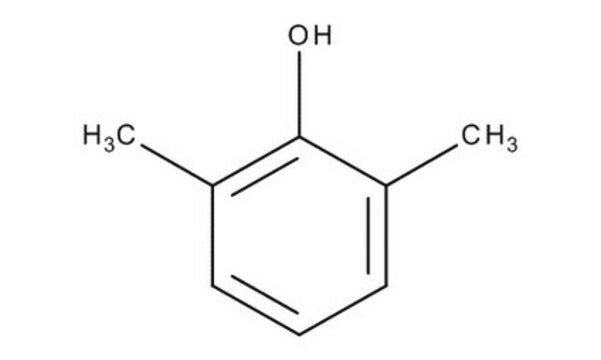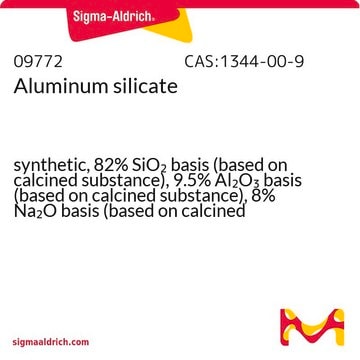D174904
2,6-Dimethylphenol
≥99.5%
Synonyme(s) :
2-Hydroxy-m-xylene, vic.-m-Xylenol
About This Item
Produits recommandés
Pureté
≥99.5%
Forme
crystals
Température d'inflammation spontanée
1110 °F
Point d'ébullition
203 °C (lit.)
Pf
43-45 °C (lit.)
Chaîne SMILES
Cc1cccc(C)c1O
InChI
1S/C8H10O/c1-6-4-3-5-7(2)8(6)9/h3-5,9H,1-2H3
Clé InChI
NXXYKOUNUYWIHA-UHFFFAOYSA-N
Informations sur le gène
human ... GABRA1(2554)
Vous recherchez des produits similaires ? Visite Guide de comparaison des produits
Catégories apparentées
Mention d'avertissement
Danger
Mentions de danger
Classification des risques
Acute Tox. 3 Dermal - Acute Tox. 3 Oral - Aquatic Chronic 2 - Eye Dam. 1 - Skin Corr. 1B - STOT SE 3
Organes cibles
Respiratory system
Code de la classe de stockage
6.1A - Combustible acute toxic Cat. 1 and 2 / very toxic hazardous materials
Classe de danger pour l'eau (WGK)
WGK 3
Point d'éclair (°F)
186.8 °F - closed cup
Point d'éclair (°C)
86 °C - closed cup
Équipement de protection individuelle
dust mask type N95 (US), Eyeshields, Faceshields, Gloves, type P2 (EN 143) respirator cartridges, type P3 (EN 143) respirator cartridges
Faites votre choix parmi les versions les plus récentes :
Certificats d'analyse (COA)
Vous ne trouvez pas la bonne version ?
Si vous avez besoin d'une version particulière, vous pouvez rechercher un certificat spécifique par le numéro de lot.
Déjà en possession de ce produit ?
Retrouvez la documentation relative aux produits que vous avez récemment achetés dans la Bibliothèque de documents.
Les clients ont également consulté
Notre équipe de scientifiques dispose d'une expérience dans tous les secteurs de la recherche, notamment en sciences de la vie, science des matériaux, synthèse chimique, chromatographie, analyse et dans de nombreux autres domaines..
Contacter notre Service technique
















